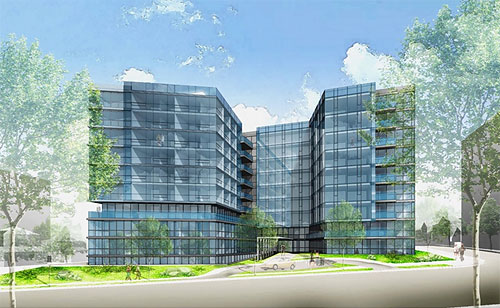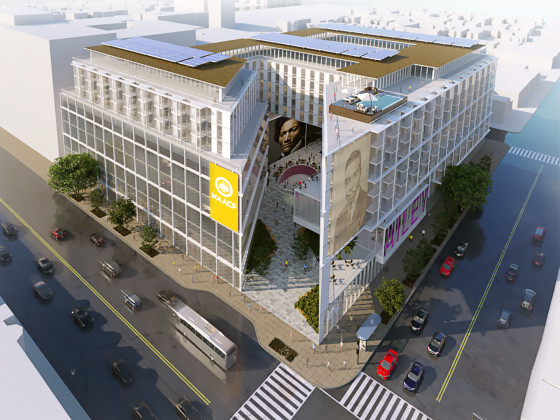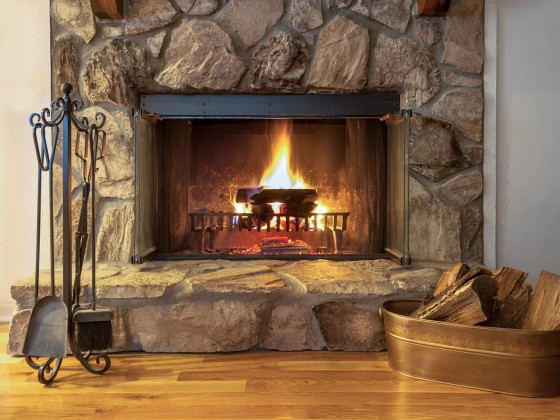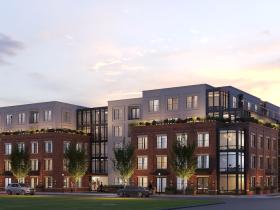 How Much Power Will A Proposed Bill Give ANCs?
How Much Power Will A Proposed Bill Give ANCs?
✉️ Want to forward this article? Click here.

An early rendering of 5333 Connecticut Ave NW
When news dropped that Ward 3 Councilmember Mary Cheh was proposing a bill to allow advisory neighborhood commissions (ANCs) to weigh in on by-right residential projects of a certain size, the criticism came almost immediately.
In short, Cheh’s bill proposes including residential buildings larger than 150,000 square feet in an already-extant process known as Large Tract Review (LTR). LTR, which currently is used for commercial and mixed-used projects over 50,000 square feet, is a process wherein ANCs and city agencies take a look at a development in the early stages of planning, communicate with the builder, and formally record their opinions and concerns. The Office of Planning then collects the opinions and sends the report to everyone involved.
Cheh believes that the outsized reactions to the proposed legislation may be because people think that ANCs will have more power than the bill actually mandates.
“There is no approval, there is no great weight,” Cheh told UrbanTurf regarding questions about new powers being given to ANCs. “The purpose of the bill is to see what the concerns are and to require engagement early on. Builders/developers don’t have to respond to the concerns raised by the ANC unless a law is being violated in some way.”
Cheh stressed that LTR is categorically different from a current ANC process that gives the commissions the opportunity to support or oppose projects that need a zoning variance from the Board of Zoning Adjustment (BZA) or approval from the Historic Preservation Review Board; in those cases, the opinion of the ANC is given “great weight.” That is not the case for LTR, said Cheh.
The bill adjusts a couple other elements of LTR, one of which Cheh hopes that developers will like. Right now, there is no real end date to the review period, and the average time for the process is 140 days. In some cases, Cheh told us, agencies and community members “drag their feet” with the hope of getting concessions from developers. So, Cheh added a time limit in the new bill. Specifically, LTR should be completed within 60 days, but can last no longer than 120 days.
“I have no interest in slowing down important projects in the District of Columbia,” emphasized Cheh.
Still, developers that UrbanTurf spoke with were not enthusiastic about the bill, to put it lightly.
“Let’s not create another bill which can open a Pandora’s box of neighbors’ wish lists and unrealistic expectations,” Ramin Bassam, president of PERS Development, said. “By-right properties, commercial or residential, require the highest amount of financial resources. They don’t and shouldn’t involve everyone’s desires.”
Cheh, however, thinks that getting buy-in from the community can be a good thing for developers. The development that led to this bill was the hotly contested project at 5333 Connecticut Avenue NW, a large, by-right residential development that has drawn the ire of many in Ward 3. Cheh believes that the developer’s failure to communicate with neighbors is what fueled the ill will towards the project.
“If the people behind it had gone out to the community and engaged with them, maybe we wouldn’t be where we are,” Cheh posited. “If you don’t do that, people in the neighborhood are going to search high and low for any aspect they can object to. They are going to fight every step of the way.”
ANC commissioners that UrbanTurf spoke with had varying perspectives on the bill. (Note: We didn’t hear back from anyone on ANC 3G, where the aforementioned Connecticut Avenue project is located.)
Matt Raymond, the chairman of ANC 2F, which covers development-friendly Logan Circle, doesn’t see much support for the bill from his fellow commissioners.
“Legislation like Cheh’s comes with little conceivable upside and a lot of potential downside—unnecessary delays that could imperil projects and much-needed housing inventory, additional costs to both government and the private sector, and probable litigation,” Raymond said. “It also sends yet another signal that DC is hostile to business at a time when we can least afford it.”
Mark Eckenwiler of ANC 6C doesn’t have a strong opinion about the bill, but sees an upside to increased communication.
“In an ideal world, you would have developers of projects of that size coming in and voluntarily engaging with the community and hearing potential concerns,” Eckenwiler told UrbanTurf. “There is no way that you can satisfy everybody, but I do think that projects benefit from input from people who are more familiar with the community, to learn about something like traffic flow or concerns about nighttime activity.”
As for its status, the bill has been referred to the Committee of the Whole, and it has not yet been announced what action they will take with it. We’ll keep you updated as the legislation moves forward.
This article originally published at https://dc.urbanturf.com/articles/blog/just_how_much_power_will_mary_chehs_proposed_bill_give_ancs/6942.
Most Popular... This Week • Last 30 Days • Ever

Today, UrbanTurf is taking a look at the tax benefits associated with buying a home t... read »

Lincoln-Westmoreland Housing is moving forward with plans to replace an aging Shaw af... read »

Only a few large developments are still in the works along 14th Street, a corridor th... read »

A soccer stadium in Baltimore; the 101 on smart home cameras; and the epic fail of th... read »

A potential innovation district in Arlington; an LA coffee chain to DC; and the end o... read »
DC Real Estate Guides
Short guides to navigating the DC-area real estate market
We've collected all our helpful guides for buying, selling and renting in and around Washington, DC in one place. Start browsing below!
First-Timer Primers
Intro guides for first-time home buyers
Unique Spaces
Awesome and unusual real estate from across the DC Metro














